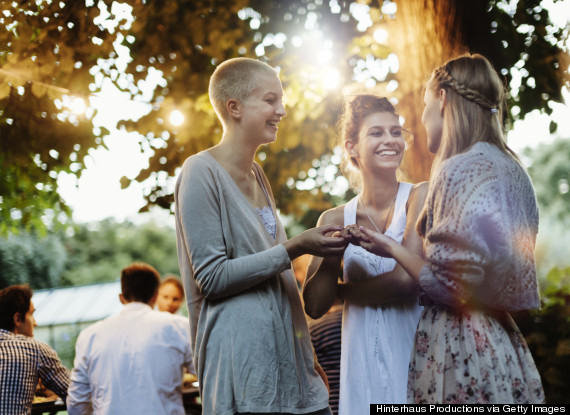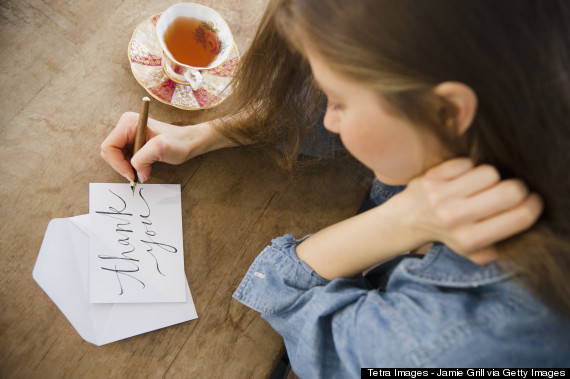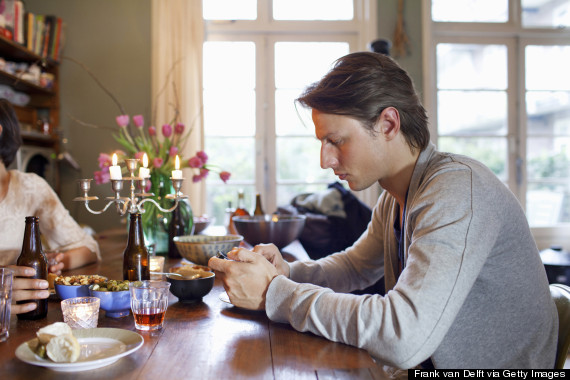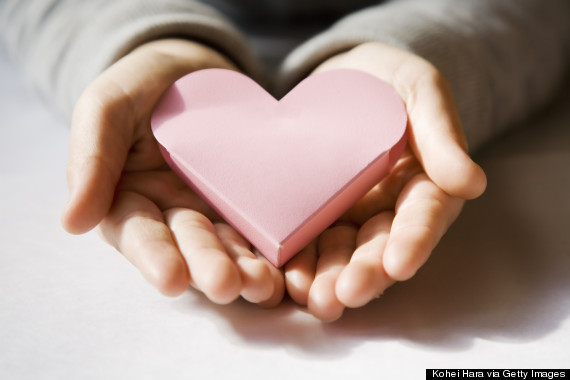
When I was the ripe old age of 6, my grandpa gave me my first stern lesson in etiquette.
We were sitting at the dinner table, and I leaned on the surface with vigor as I waited for my mother to dish out my serving of green beans. He looked at me with a serious expression and a slight crinkle in his eye and said, "Lindsay, Emily Post says no elbows on the dinner table."
From then on, Emily Post (and her arbitrary rules) was like an additional guest at our family gatherings. She came up when my cousin talked with his mouth full. Her definitive book of guidelines showed up at Christmas in the form of a gag gift. But despite the fact that she's a running joke in my family, she also provides a valuable lesson on manners that sometimes feels lost in the world today.
Politeness doesn't necessarily seem like a strength, but it holds more benefits than you might think, instilling good habits that go way beyond supper. Not convinced? Below are four reasons why we should all re-learn the art of kindness and good manners.
Good manners serve as the foundation of strong social skills.
Good manners are more than just putting a napkin in your lap and not slurping your soup -- they also serve as the basis of social connection. In fact, some experts theorize that manners were around in the caveman era; without them we wouldn't be nearly as advanced as a species. "The rules of good manners are the traffic lights of human interaction," Pier Forni, a professor at Johns Hopkins University and civility researcher, told the Washington Post in 2011. "They make it so that we don't crash into one another in everyday behavior."
The truth is, we're better communicators when we're polite. Actions like looking into someone's eyes when they talk and being a good listener all fall under practicing good manners.
They're an easy way to practice gratitude.
Part of politeness is writing thank you notes when necessary (yes, even for that ugly sweater grandma made you). While the exercise may seem tedious, it's also a good way to cultivate a little gratitude, because it implores you to recall the kindness someone extended to you. Studies show that consistently writing down what we're grateful for -- whether it's in a journal or through the art of a well-crafted thank you note -- can help you have a more optimistic outlook on life.
They could help us unplug.
We may be living in a digital landscape that Emily Post never saw coming, but it's still considered poor taste to text at the dinner table. And not only that, the presence of technology at the table could be hurting our relationships. Research shows that even the mere presence of a phone could have a negative impact on our social connections. By stashing your device, you're being polite and you're benefiting your bonds. Win-win.
Finally, good manners just make us feel, well, good.
It may sound a little selfish, but if you have no other reason to practice good manners, do it at least for yourself. Research suggests that being kind to others makes us happier -- and nothing shows kindness like being conscientious of those around you. A happy outlook in exchange for minding my manners? Don't mind if I do.
This GPS Guide is part of a series of posts designed to bring you back to balance when you're feeling off course.
GPS Guides are our way of showing you what has relieved others' stress in the hopes that you will be able to identify solutions that work for you. We all have de-stressing "secret weapons" that we pull out in times of tension or anxiety, whether they be photos that relax us or make us smile, songs that bring us back to our heart, quotes or poems that create a feeling of harmony or meditative exercises that help us find a sense of silence and calm. We encourage you to visit our other GPS Guides here, and share with us your own personal tips for finding peace, balance and tranquility.
